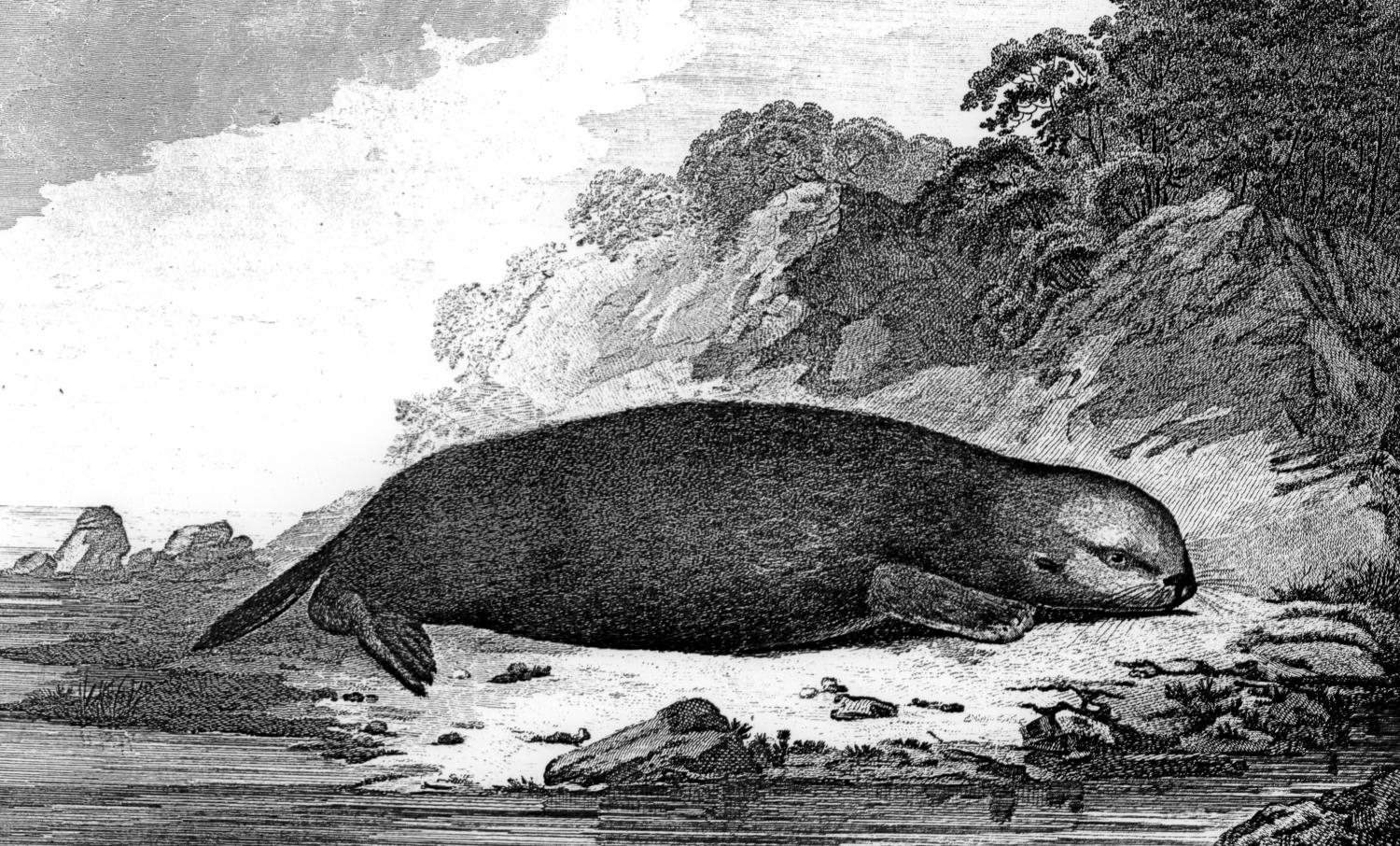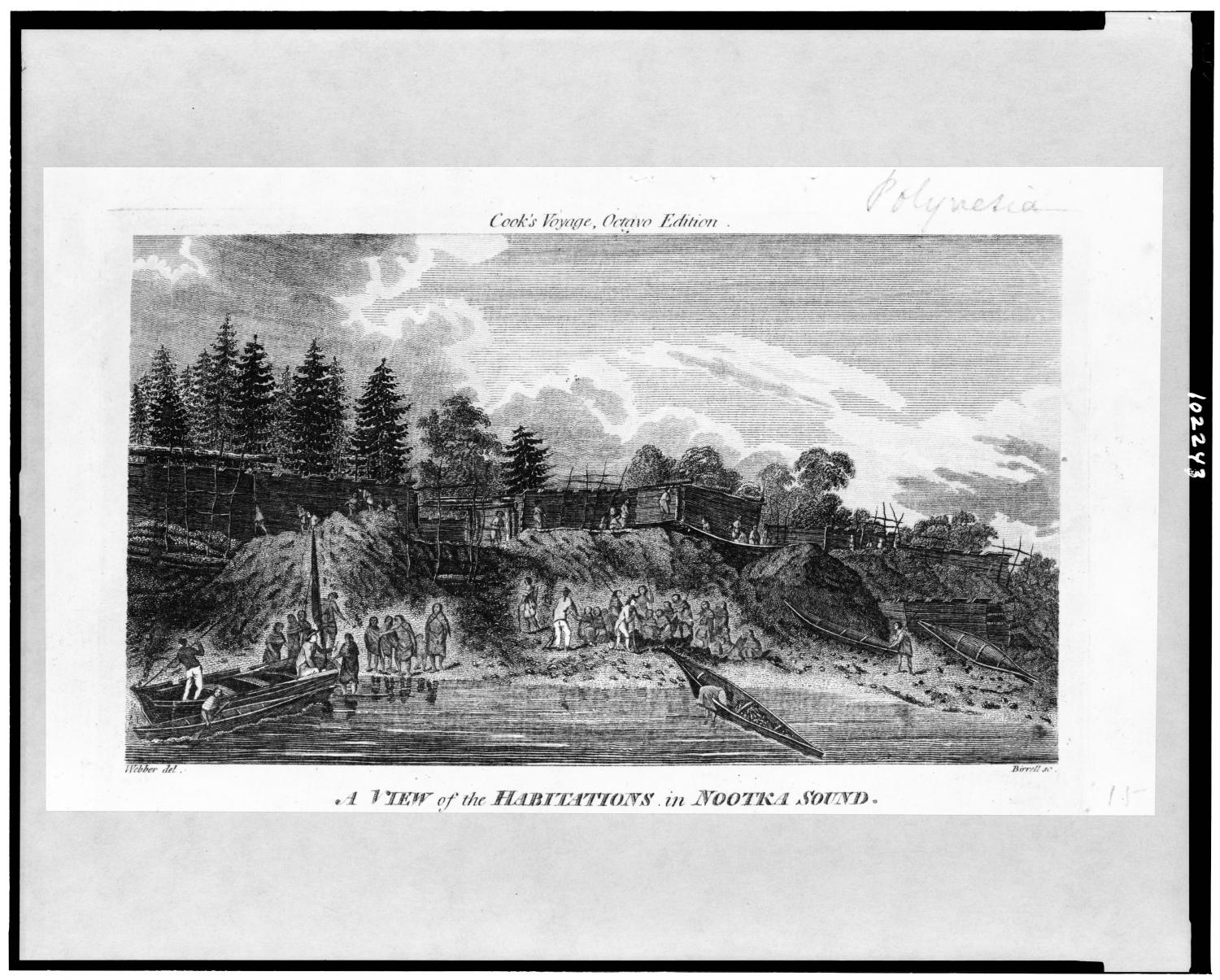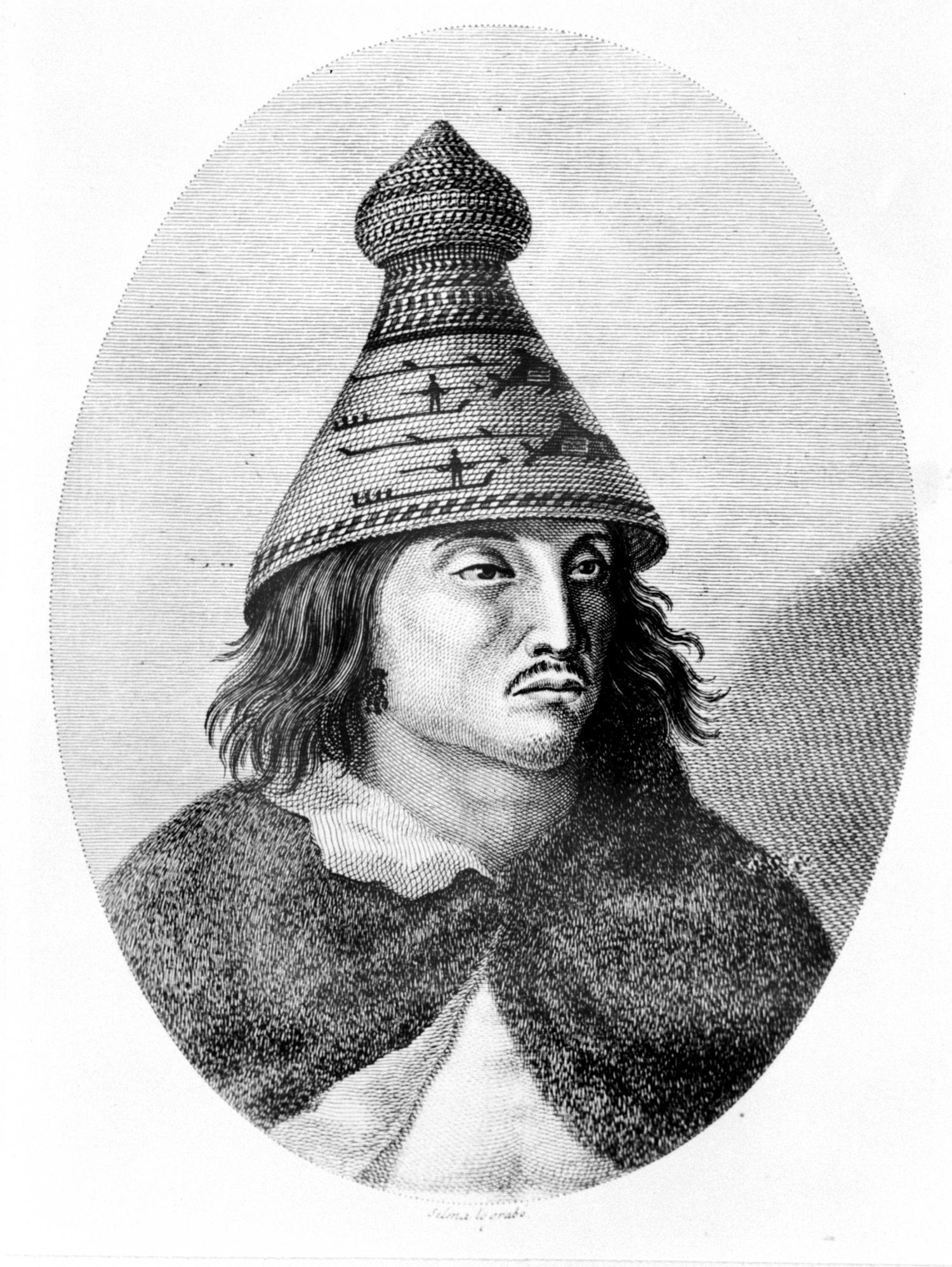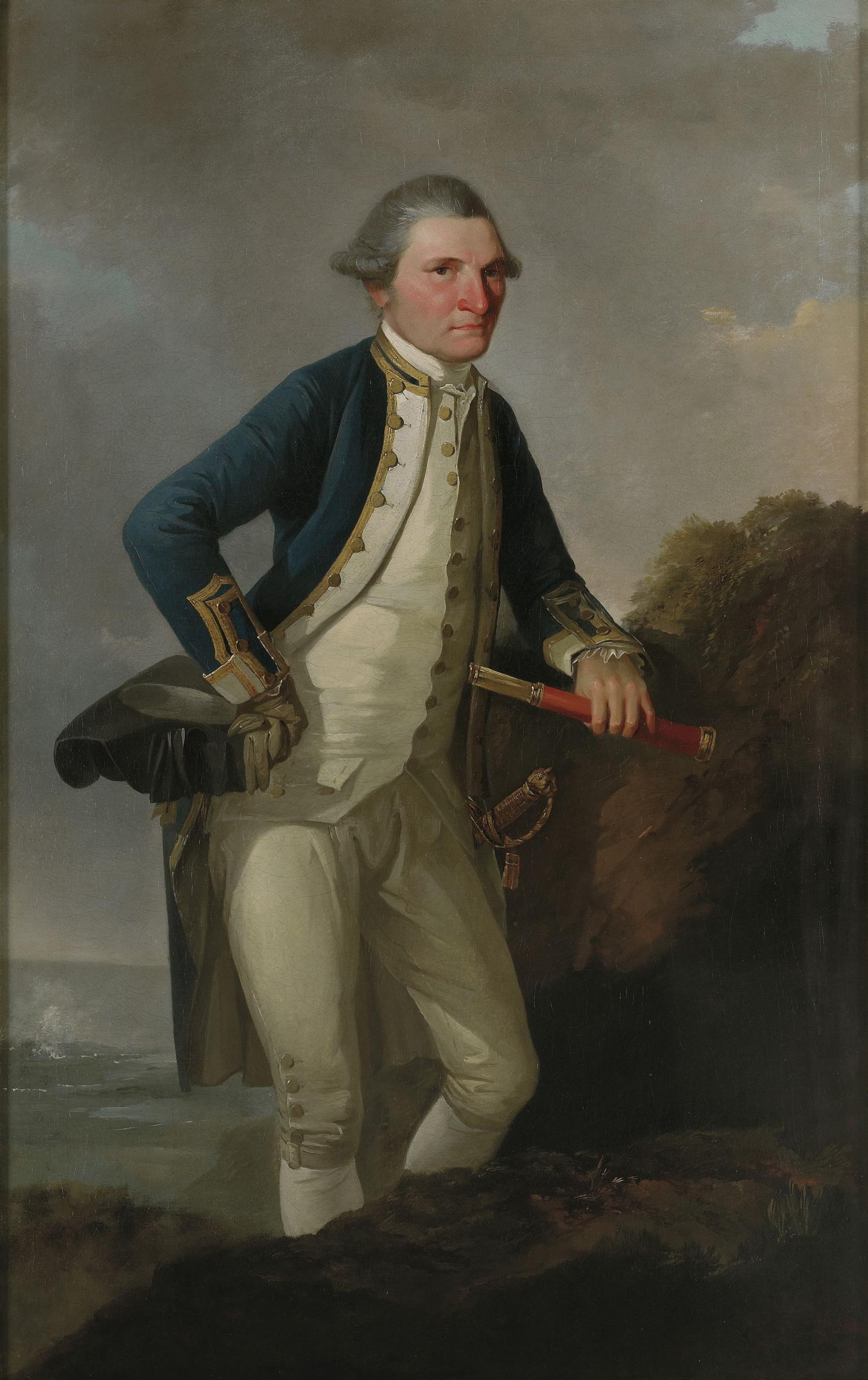Chief Maquinna Meets Cook
Worlds collide, and Nootka Sound becomes a major centre for European trade
Date: 1778
In the summer, the Mowachaht often stayed on Nootka Island — just off the west coast of Vancouver Island — in a village called Yuquot. The word means “where the winds blow from many directions.” That’s where the Mowachaht and their leader, Chief Maquinna, met British explorer James Cook in 1778. After a long journey from Hawaii, Cook was in search of a sheltered bay to repair his ships when the Mowachaht rowed out to greet him. The Mowachaht — now amalgamated with their close relatives, the Muchalaht — are a member nation of the Nuu-chah-nulth. But Cook must have misunderstood the name of his hosts. He called them Nootka, a misnomer that stuck.
This was only the second documented encounter between Europeans and the Indigenous peoples in what is now British Columbia. Four years before, Spanish explorer Juan Perez had met and traded with both the Haida and the Nuu-chah-nulth. But Cook’s meeting with the Mowachaht, specifically Chief Maquinna, went far beyond a brief exchange of goods. It kicked off Britain’s maritime fur trade and helped secure the Empire a foothold in the region. Chief Maquinna, meanwhile, went on to become one of the most powerful men in the Pacific Northwest.
Maquinna was already an influential leader by the time Cook met him, a status he maintained and grew through generous potlatches, like other coastal chiefs. He was responsible for overseeing the distribution of ‘hoopukunum,’ a term similar to the concept of Crown land. This authority gave Maquinna exclusive control over fur-trapping. For the newcomers, he was the person to talk to. And it appears Cook was impressed by the welcome Maquinna offered. He dubbed Yuquot “Friendly Cove.”
While affable, Maquinna was an astute negotiator, shrewder than those Cook had bartered with in Hawaii. Cook also appeared to be struck by the Nuu-chah-nulth’s approach to material goods. At one point, when his men began cutting grass, they were told ‘makook,’ meaning ‘let’s trade.’ “I have nowhere met with any uncivilized nation, or tribe, who had such strict notions of their having a right to the exclusive property of everything that their country produces,” Cook later wrote in his journal. Britain had instructed the explorer to claim lands he discovered whenever “convenient” and “with the consent of the natives.” However, in the case of Yuquot and the surrounding territory, he never did. As Cook put it, the Mowachaht “considered the place as entirely their property, without fearing any superiority.”
Following Cook’s visit, Yuquot became the centre of European trade on the northwest coast of North America. It remained so for the rest of the century. The sea-otter fur amassed there was traded for European goods, like tools and guns, and then sailed to China, where merchants paid an exorbitant price for the coveted pelts. It didn’t take long before Spain and Britain found themselves in conflict over who controlled this resource-rich land. The Spanish Empire had claimed all of the West Coast for themselves, as well as jurisdiction over the burgeoning otter fur trade. In 1789, the Spanish even built a small, short-lived settlement at Yuquot called Santa Cruz de Nuca. The so-called Nootka Crisis, a conflict involving Spain, Britain and the United States, nearly resulted in a war, but the powers eventually settled their differences. Maquinna, who over time learned both English and Spanish, is believed to have played an important pacifying role in the dispute. According to the Nootka Conventions, Nootka Sound was to remain open to all nations. Neither Britain nor Spain could claim exclusive sovereignty to the area nor establish permanent buildings — a commitment Britain would later break.
Soon after, the local fur trade had ended and moved further along the coast. Unsustainable hunting had decimated Nootka Sound’s otter population in only a few decades. And though Maquinna and the Mowachaht had benefited greatly from this new economy, this new power also brought tumult and warfare with neighbouring tribes as an emboldened Maquinna tried to widen his territory.
Sources:
1. Arima, E.Y. Nuu-Chah-Nulth (Nootka). The Canadian Encyclopedia, www.thecanadianencyclopedia.ca/en/article/nootka-nuu-chah-nulth.
2. Belshaw, John Douglas. “Fur Trade and Empires.” Canadian History: Pre-Confederation, B.C. Open Textbook Project, opentextbc.ca/preconfederation/chapter/13-3-fur-trade-and-empires/.
3. Dewhirst, John. Nootka (BC). The Canadian Encyclopedia, 12 Mar. 2011, www.thecanadianencyclopedia.ca/en/article/nootka-bc.
4. Fisher, Robin. Contact and Conflict - Indian-European Relations in British Columbia, 1774-1890. UBC Press, 1977, www.ubcpress.ca/contact-and-conflict.
5. Fisher, Robin. Maquinna. The Canadian Encyclopedia, 7 Feb. 2006, www.thecanadianencyclopedia.ca/en/article/maquinna.
6. Fisher, Robin. MUQUINNA. Dictionary of Canadian Biography, www.biographi.ca/en/bio/muquinna_1795_4E.html.
7. History & Heritage. Village of Tahsis, villageoftahsis.com/recreation-culture-community/history/.
8. Lutz, John Sutton. Makuk: a New History of Aboriginal-White Relations. UBC Press, 2014.
9. Maquinna. Maritime Museum of British Columbia, www.virtualmuseum.ca/edu/ViewLoitDa.do;jsessionid=04991D6BC9403D512E1D26F35095A097?method=preview&lang=EN&id=19692.
10. Marshall, Daniel. The Forgotten Treaty-Making of Chief Maquinna. The Orca, 17 Nov. 2018, theorca.ca/resident-pod/the-forgotten-treaty-making-of-chief-maquinna/.
11. Munday, Evan. Chief Maquinna, Gatekeeper of the Pacific Northwest. CBC News, 29 Mar. 2017, www.cbc.ca/2017/canadathestoryofus/chief-maquinna-gatekeeper-of-the-pacific-northwest-1.4046491.
12. Roy, Patricia, and John Herd Thompson. British Columbia: Land of Promises. Langara College, 2006.
13. Titian, Denise. “Chief Maquinna/Captain Cook Canadian Commemorative Coin Released.” Ha-Shilth-Sa, 3 July 2018, hashilthsa.com/news/2018-07-03/chief-maquinnacaptain-cook-canadian-commemorative-coin-released.





